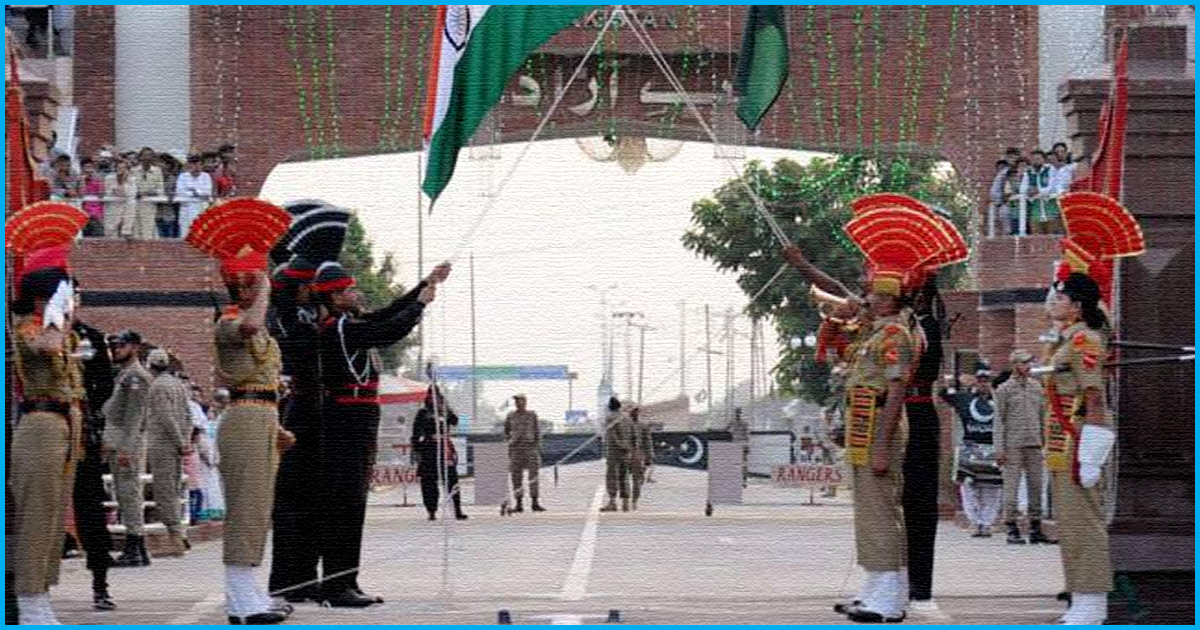
Geneva Conventions: Prisoners Of War Must Be Treated Respectfully; Cannot Be Subjected To Mental Or Physical Torture
28 Feb 2019 9:09 AM GMT
Editor : Sumanti Sen
Sumanti Sen is an English Literature graduate who believes "there's just one kind of folks. Folks.".
What prisoners of war fear the most is the unknown. For those in their homes enjoying a good night’s sleep, what goes through the mind of a Prisoner of War is perhaps unimaginable. In India, the entire country is now concerned about what will become of Wing Commander Abhinandan Varthaman, who was captured yesterday. Scores of people have taken to social media asking for his safe return. Abhinandan’s composure in the face of danger is worthy of appreciation.
According to the Geneva Conventions, the IAF pilot captured by Pakistan is to be treated as a prisoner of war (POW). Once the hostilities between both the countries end, the POW must be released. Pakistan, however, has said that they have not decided on his Prisoner of War status as of yet.
The guidelines laid down by the Geneva Conventions must be followed by the UN for the protection of Human Rights. It was laid down in 1929, and again in the aftermath of World War II, in 1949, it was refined. Among the four Geneva Conventions, the third details and defines who can be held as a POW and how they must be treated.
Only in the case of an international armed conflict can a POW’s status be applicable. Generally, POWs are members of the armed forces or those somehow attached to them, who fall into the hands of or are captured during a conflict, by the adverse party.
What does the Geneva Conventions say?
According to Article 13 of the third Geneva Convention, a POW must be humanely treated at all times. If the country, under whose captivity the POW is, kills or in any way endangers the prisoner’s health, it will be considered a very serious breach of the Convention.
The Convention says that the country cannot subject the POW to physical mutilation, or to any kind of medical or scientific experiment, unless justified by the medical, dental or hospital, under which he is being treated. Further, nobody can intimidate or insult him, or subject him to public curiosity.
After Abhinandan’s capture, the Indian government strongly objected to the way Pakistan displayed in a video the injured Indian Air Force personnel, which was vulgar and which violated all norms of International Humanitarian Law and the Geneva Convention, reported The News Minute.
“It was made clear that Pakistan would be well advised to ensure that no harm comes to the Indian defence personnel in its custody. India also expects his immediate and safe return,” the Indian Government said in its statement.
The prosecution of a POW for taking direct part in hostilities is also prohibited. His detention must not be considered a punishment, but only an attempt to ensure that he does not further participate in the conflict. After the hostilities end, he is supposed to be released and repatriated safely and without delay. The detaining power may prosecute them for possible war crimes, but not for acts of violence that are lawful under International Humanitarian Law,” it states.
A POW cannot be mentally or physically tortured in order to derive any kind of information from him. If he refuses to answer any questions, he cannot be insulted, threatened or made subject to any kind of unpleasant treatment. He can only be required to provide his name, date of birth, rank and service number.
If a POW is unable to state his identity due to deteriorating mental or physical conditions, he has to be handed over for medical treatment. Apart from military equipment and military documents, all other personal effects must remain with the POWs. He must be allowed to have identity documents on his person.
Pakistan’s track record with previous captured soldiers
Despite the Geneva Conventions that have been laid down, Pakistan previously has not hesitated to violate its guidelines. In the case of Wing Commander Abhinandan Varthaman, the neighbouring country has at least acknowledged that he is in their custody, because in the past, military personnel from India have been brutally tortured and killed by Pakistani forces.
In the 1999 Kargil conflict, Squadron Leader Ajay Ahuja and Captain Saurabh Kalia were taken prisoners by Pakistani forces. While Ahuja was flying a MiG-21, a surface-to-air missile hit his fighter, following which he himself had to eject. He was attempting to trace a lost MiG-27, which was being flown by Flight Lieutenant K Nachiketa. Ahuja’s body was later returned by Pakistan, and it bore point-blank bullet marks. He had been captured alive and shot dead.
26-year-old Nachiketa was captured by Pakistani Army, publicly paraded on Pakistan TV and brutally tortured in private. They later handed him over to the International Committee of the Red Cross.
In May 1999, 22-year-old Captain Saurabh Kalia was out on a patrol with five other soldiers in Kargil’s Kaksar area. Pakistan Army intruders captured them well within the LoC’s Indian side. Later in June, Pakistan Army handed over their bodies, which were badly mutilated and suggested what brutal torture they must have been through.
Despite what had happened it the past, it is critical that Pakistan treats its Prisoners of War with dignity. Going by the Geneva Conventions, they have absolutely no right to harm, physically or mentally, its POWs. The Logical Indian stands with Wing Commander Abhinandan Varthaman and demands his safe return to his country.
Also Read: MEA Confirms IAF Pilot Missing In Action, Ascertaining Facts On Pakistan’s Claims Of Pilots’ Capture
 All section
All section













